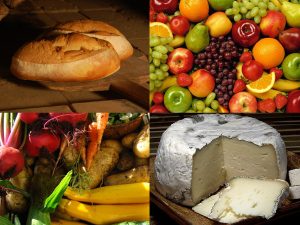A new report from the US Department of Agriculture assesses the potential effects of the Transatlantic Trade and Investment Partnership on farmers. It’s pretty difficult to decipher, but our position is that we don’t want an increase in Transatlantic trade when it comes to agriculture. This will only benefit the corporate sector, at the expense of small farmers. We’ll be helping to support US mega-factory-farms and abattoirs that process 1300 pigs per hour. We don’t want that – we want to support small farmers producing for local markets, and we don’t need the economic growth promised by TTIP either. So even in it’s ‘best-case scenario’ guise, TTIP is undesirable.
On the eve of the Real Farming Conference, I’m surprised not to see a session on TTIP or trade deals on the programme, as TTIP will promote Transatlantic trade over local trade, large over small, and provide a barrier to all the wonderful things that the conference is promoting.
Here’s the report.
Here’s an introduction to TTIP.
Over to David Margolies of Stop TTIP uk for his analysis of the report.
—————————————————————————————————————————————————-
I don’t think you need to be an economist to interpret the document — it’s more a question of language that obscures reality. Thus the NTMs, the non-tariff measures, are meaningful in their specifics more than their generality. The equivalent is the non-trade barriers issues that we’ve already seen in other parts of TTIP documents — both are concerned with ‘harmonising’ regulation.
Thus the most ‘advantageous’ aspect of getting rid of NTMs in agriculture, if the US gets its way, involves Europe accepting US regulation of SPS (sanitary phyto-sanitary) matters — i.e. accepting the US regulations in regard to meat and plant products. One of the proposals is that double inspection of meat is unnecessary and that the exporter’s inspection should be sufficient. But recent material on US meat inspection shows that there is no real inspection system; there’s a gesture that is ineffective in terms of what the inspections are supposted to do. They are supposed to cause the removal of products damaging to health but, aside from the fact of a frighteningly high level of food poisoning in the States, the Dept of Agriculture has no more power than to advise withdrawal of contaminated food — they can’t require it.
In a recent report of chicken factory inspection in the US, a large factory had two inspectors, one of whom was permanently concerned with paperwork rather than practical inspection, while the other was at the end of a production line moving so quickly that he couldn’t seriously inspect. Most of the chickens had salmonella but that is not considered a reason to withdraw them in the US, since salmonella can be killed in cooking. The process that is supposed to take care of the contamination which we already know about, washing in chlorine, doesn’t actually take place as washing because the production line moves too quickly to have them submerged. Rather the chicken is sprayed with chlorine. This may take care of the outside but not the inside — and since Americans largely prefer to purchase chicken parts rather than whole birds, they are likely to be buying chicken that has been through disinfectant on one side only.
Even here the government is trying to increase the voluntary elements of inspection at the expense of the statutary part, reducing the number of inspectors and their powers. This permits faeces-contaminated meat to enter the food chain. Our chicken inspection has not been very commendable but the standard is still significantly higher than that of the US.
European consumers, it is suggested, would be offered cheaper food, which is probably true, but in many cases it would not be safe to eat. North Carolina, I am told, is practically one big pig farm and the smell covers most of the state. It produces factory pork, not farm pork — cheaper, full of antibiotics, produced by a regime of cruelty to animals, and probably contaminated by pig faeces. This is beside questions of GM and growth hormones. It won’t make a healthier, happier, better-nourished Europe; it’ll make bigger profits for the good conglomerates.











